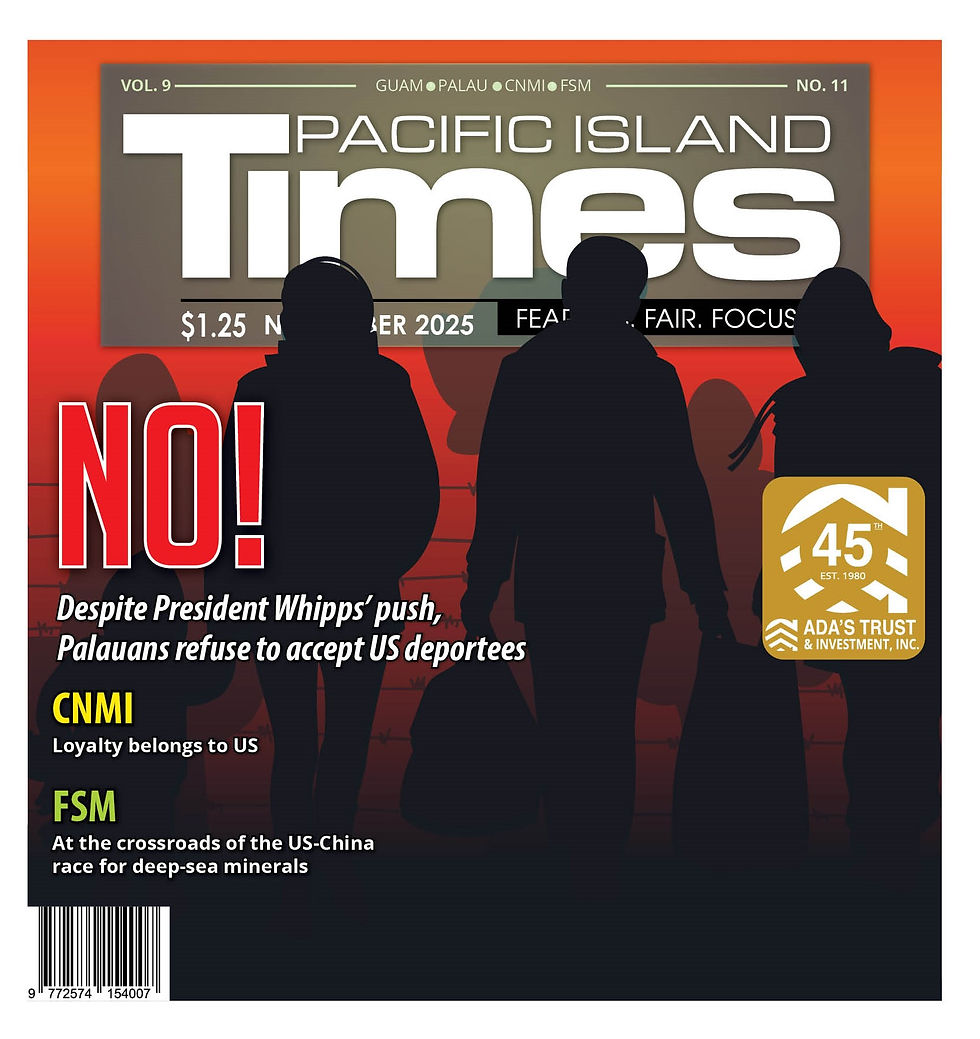'Why are we still stuck in the Stone Age?' Digital documentation system proposed for paper-dependent Guam Customs
- Admin

- Nov 25, 2025
- 3 min read
Updated: Nov 25, 2025

By Pacific Island Times News Staff
Sen. Jesse A. Lujan has introduced a bill to address the antiquated system at Guam Customs and Quarantine, which is still heavily reliant on paper transactions.
Bill 234-38 would mandate the adoption of the Automated System for Customs Data as the official customs management system of the Guam Customs and Quarantine Agency, and to authorize formal agreements with the United Nations Conference on Trade and Development for its implementation and maintenance.
For decades, Guam Customs has operated without access to the Automated Commercial Environment and other federal trade platforms because Guam is outside the customs territory of the United States.
Despite the government’s push for digitalization, the Guam Customs and Quarantine Agency still uses a manual filing system and relies heavily on “paper-intensive” submissions for cargo documentation.

Earlier this year, Public Auditor Benjamin Cruz noted that all entry documents, including bills of lading, invoices, packing lists, manifests, and other documents processed by the agency, are filed and stored in more than 5,000 cardboard boxes.
Lujan warned that these conditions create a high risk of unaccounted cargo, revenue leakage, and exposure to fraud, waste, and abuse.
“Guam cannot afford a customs system that belongs in the past,” Lujan said. “Every container and every pallet that passes through our ports should be accounted for accurately and in real time."
ASYCUDA is a proprietary customs management system developed and administered by UNCTAD and used by more than 200 customs administrations worldwide, including small island developing states in the Pacific. It is widely recognized as a global standard for electronic customs management, risk profiling, and trade facilitation.
"If more than 200 customs administrations around the world are using this system, why are we still stuck in the stone age?" Lujan asked. "This bill is about protecting our borders, protecting our revenue, and giving Customs the tools it needs to do the job the people of Guam expect.”
As part of Guam’s preparation for this transition, a delegation recently traveled to Palau, which has successfully implemented ASYCUDA, to learn from its experience.
"Guam will use Palau’s success as a model moving forward, applying these lessons to build a stronger and more resilient customs platform," said Vincent S.N. Perez, acting CQA director. "What we learn here will directly improve our revenue collection capabilities, enhance real-time data tracking and statistical reporting, and streamline our processes from end to end.”
CQA officials said the agency is eager to migrate to a computerized system to efficiently document, process and assess information amid an evolving customs landscape and in alignment with international standards.
“Use of the ASYCUDA platform will enable us to effectively and sustainably
accept submissions of required customs documents and capture vital data to manage trade facilitation and interdict threats with improved security, record accessibility, revenue tracking, risk assessment, and other advanced
capabilities,” said Vincent Perez, acting CQA director. “This type of capacity building is highly necessary for more precise threat detection and the targeted enforcement needed to keep our community safe.”
The Oceania Customs Organization and other international experts have recommended that Guam adopt ASYCUDA as the backbone of its customs automation efforts.
The legislature has already laid important groundwork through Public Law 35-105, which strengthened advance cargo reporting and penalties for non-compliance, and Public Law 37-82, which authorized CQA to adopt a customs automated system and the Harmonized System for commodity classification.
“This bill is the next step in fixing long-standing problems that our own auditors have already documented,” Lujan said.
Subscribe to
our monthly
digital edition






